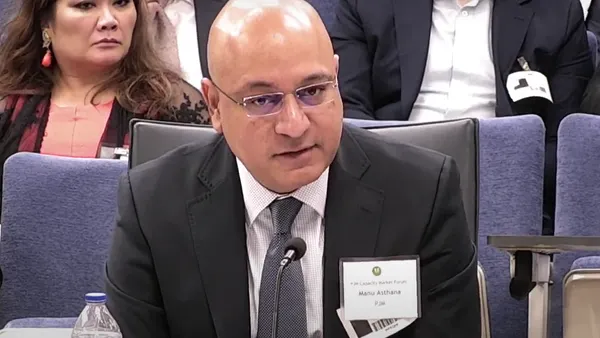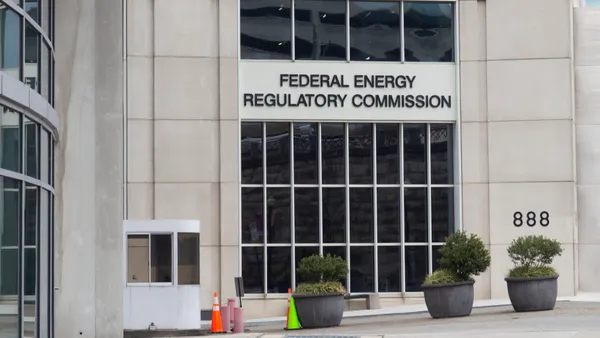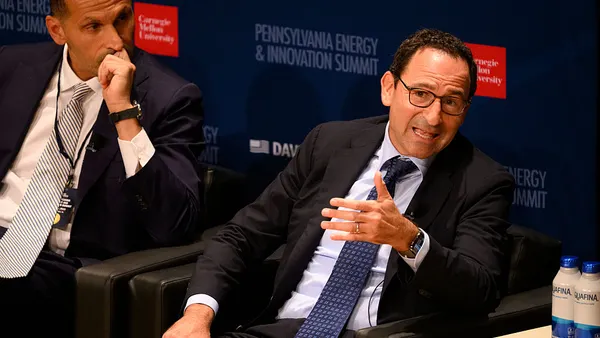Dive Brief:
- The California Public Utilities Commission (CPUC) opened a rulemaking Thursday to implement a provider of last resort (POLR) framework for the state, to ensure customers will receive electricity even if their power provider goes under or isn't able to continue service.
- Investor-owned utilities in the state currently serve as the POLR in each of their service territories. But in a second phase of the new rulemaking, regulators intend to focus on other entities that could take on that role.
- Creating a distinct POLR framework could be critical in a situation where a load-serving entity is suddenly unable to provide power to its customers. "What we're basically trying to do as a state is shore up the safety net of consumer protections that hopefully we will never have to need," said Michael Colvin, director of regulatory and legislative affairs at the Environmental Defense Fund.
Dive Insight:
A POLR, essentially a utility or entity that is obliged to serve all customers, isn't specific to the electric sector — telecommunications carriers of last resort, for instance, have existed since the 1990s. In California, the concept has become especially relevant since the state restructured its electricity markets and transitioned away from vertically-integrated utilities that controlled generation, transmission and distribution, to a more competitive landscape .
Now, a host of other entities — like community choice aggregators (CCAs) and direct access providers, can provide customers with electricity. Moreover, customers have increasingly been turning to distributed solar and storage resources. As a result, a large chunk of load in the state is no longer in the hands of investor-owned utilities.
The question regulators are trying to grapple with now is what happens if a load-serving entity is suddenly unable to provide service to customers, for example, if it abruptly declares bankruptcy, Colvin explained. Earlier, it was automatically assumed that utilities would pick up the slack. But as more and more customers migrate to other entities, it isn't guaranteed that utilities will have enough power on standby to absorb a lot of customers very quickly.
The need to protect non-utility customers from rate volatility was highlighted by the recent blackouts in Texas, the commission noted in its order. Texas has one of the most established POLR frameworks in the country, but when wholesale energy prices surged during the winter storm last month, some retail providers urged customers to switch to other providers in anticipation of high pass-through charges, the regulators pointed out.
In 2019, California lawmakers passed legislation that agreed that the state's utilities are currently POLRs in their service territories, but also instructed regulators to create a framework for other entities to take on this role. The new rulemaking will focus on how regulators can manage reliability, emissions targets and cost allocation if there is an unplanned customer migration from load-serving entities to their POLRs.
The CPUC will conduct it in two phases — the first will look into managing a transition to the current POLRs, the utilities. The second will craft requirements and an application process for other entities to be designated POLR. This could include establishing minimum standards for entities who say they want to take on that role, or limits on how many customers can fall under one POLR, Colvin said.
The California Community Choice Association (CalCCA) welcomes the discussion around improving the POLR process and "believes policies should be updated to reflect the reality of today's electricity market in California, one in which CCAs serve the vast majority of customers in their service territories", the group said in an emailed statement.
"We look forward to engaging in the CPUC rulemaking to ensure CCAs have a clear pathway to be designated as POLR," CalCCA added.
A key concern for EDF, meanwhile, is ensuring that an unplanned shift to a POLR doesn't result in increased greenhouse gas emissions. Regulators could create rules as part of this proceeding to guard against that possibility, Colvin said.
"We basically [don't] want to be locking in new long-term fossil fuel plans under the guise of an emergency, because of a POLR situation," he added.














